🐼 x🍹Baijiu Cocktail 003: Jǐn Sè 锦瑟
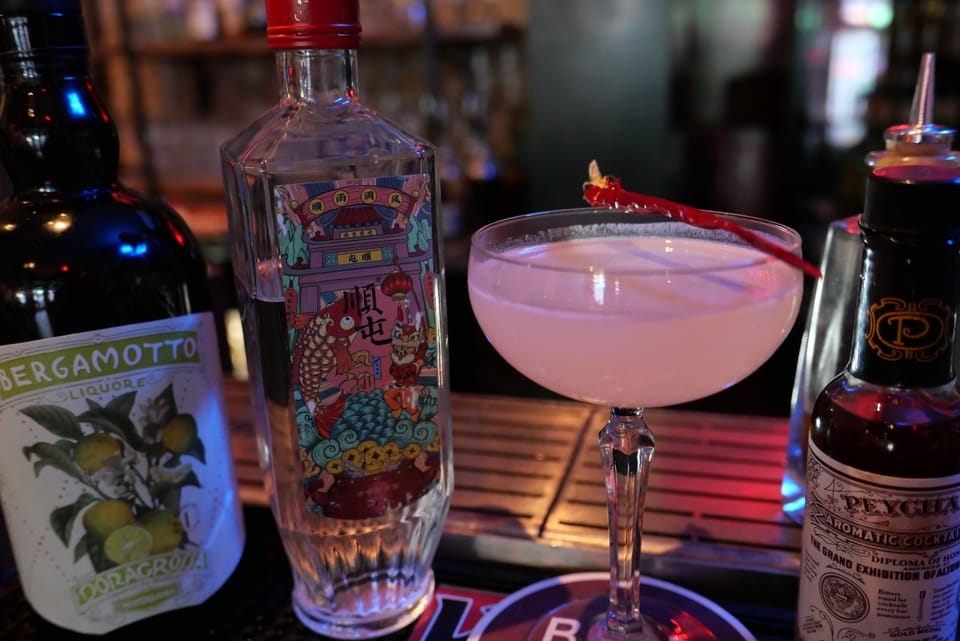
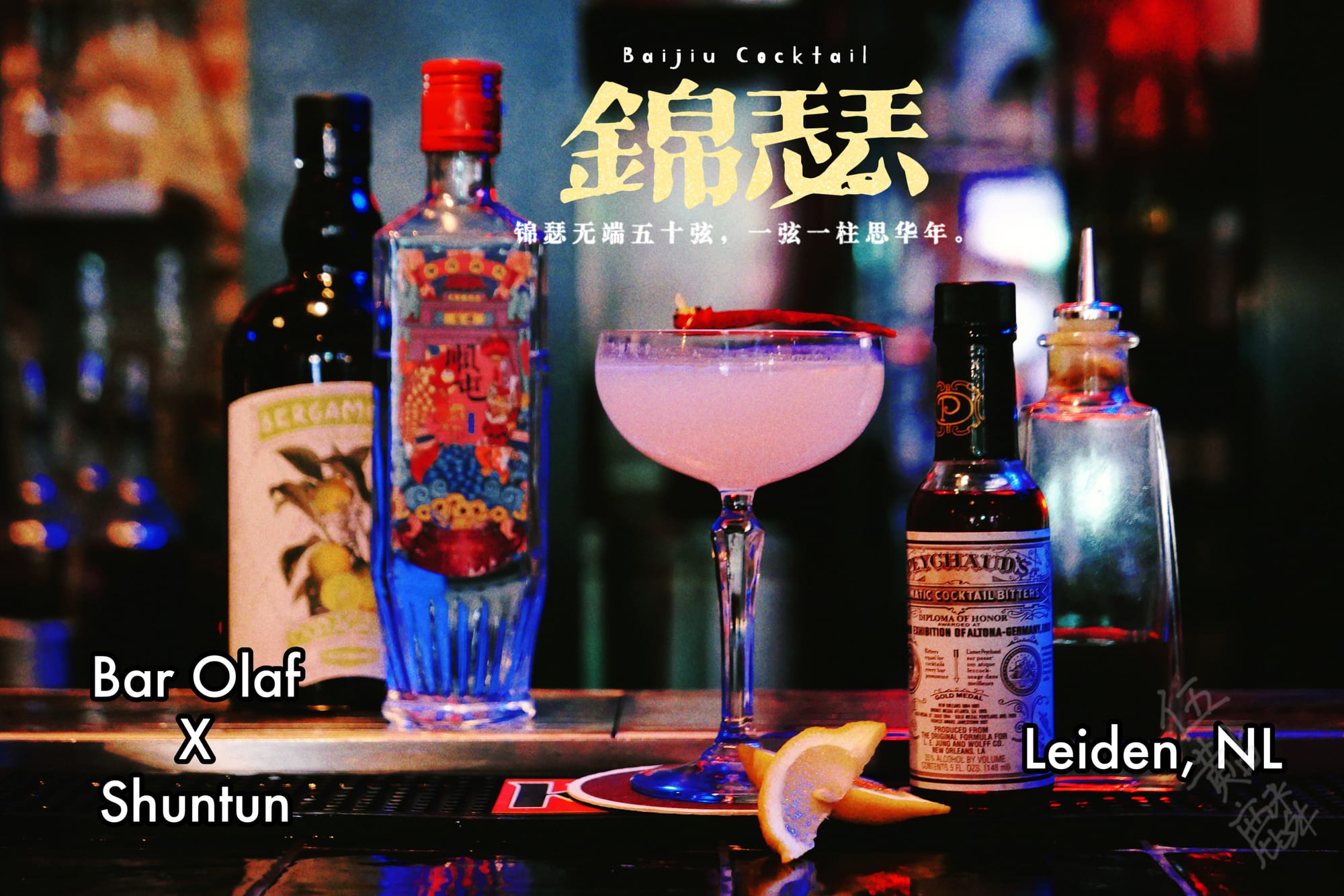
1st Edition: HNW20240606
Introduction
Jǐn Sè is a new creation by Bauke, the bartender at Bar Olaf in Leiden. The base spirit is Shuntun Baijiu from Mianzhu, Sichuan, mixed with bergamot liqueur, almond syrup, chili bitters, and fresh lemon juice, shaken with ice 🧊, and garnished with a dried chili pepper. The aroma of Jǐn Sè carries a subtle rice fragrance, while closer inspection reveals a pleasant floral and fruity scent, with pineapple being particularly prominent. The taste is sweet and refreshing, with a playful hint of spiciness, retaining the mellow warmth of the baijiu.
Story
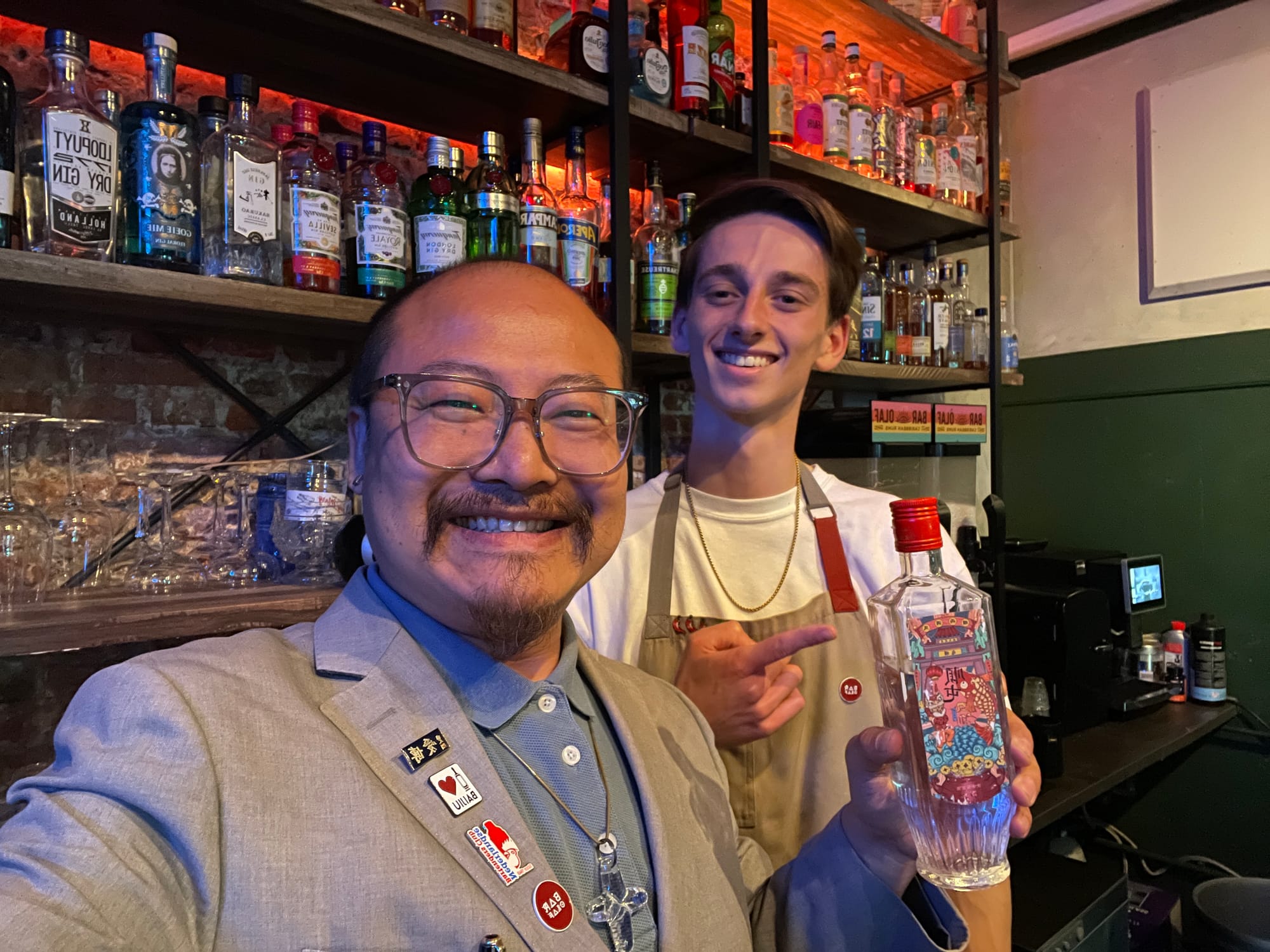
Chinese Baijiu Merchant Hans Ngo Wurfbain visited Bar Olaf in Leiden on 5th, June, 2024, the Chief Bartender Bauke van der Kraan improvised with Shuntun after tasting Baijiu. (Bar Olaf: Hooigracht 49, 2312 KP Leiden) Bauke loved Baijiu, and he shared the composition of the Baijiu cocktail with Hans.
Leiden is one of Hans' favourite cities in the Netherlands. There is the oldest university in the Netherlands, The Leiden Universiteit, while there is the best arranged nature museum (Naturalis Biodiversity Center). Besides, the National Museum of Antiquities (There are huge amount of collections of Egyptian Mummies, some of the mummified animal bodies are so rare, and you won't see them in the Louvre in Paris. Anyway, you must go. Free Entrance with Museum Card) and the Botanical Garden of the Leiden Universiteit are the must to see in this city. The other places worthwhile to be enlisted are: Burcht van Leiden (The defensive fortress on the small mound at the fork of the river offers an excellent vantage point, overlooking the old town of Leiden, where both medieval and modern civilizations can be fully appreciated. )
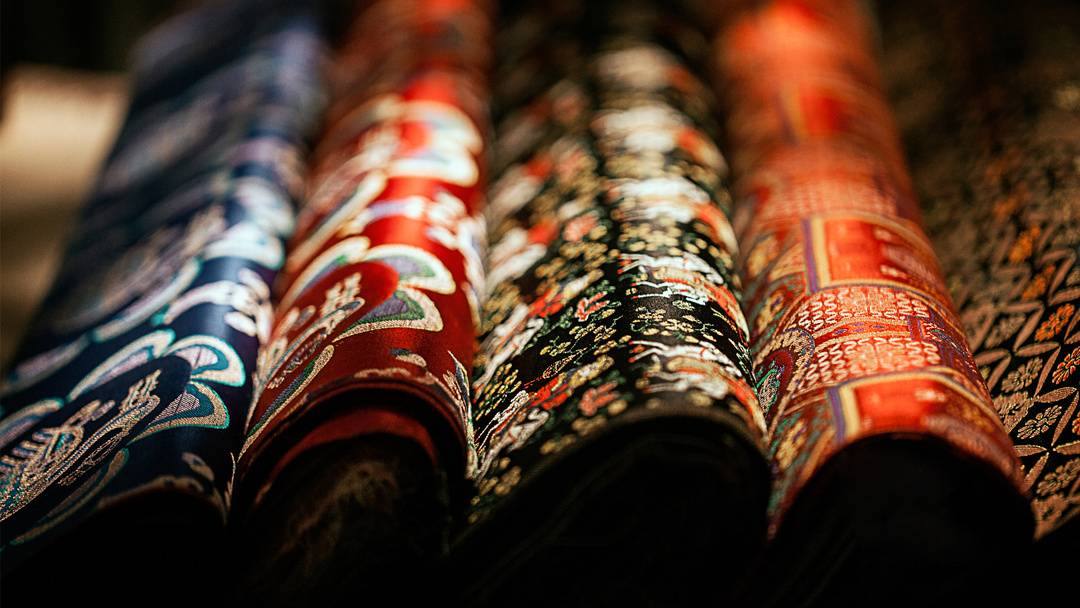
The new creation of Baijiu Cocktail is always troubled with getting a good name. Hans is from Chengdu, a city famous for ShuJin (蜀锦), which refers to a type of luxurious and exquisite silk fabric, renowned for its vibrant colors and intricate patterns. Beyond being just a textile, it is often used metaphorically to describe beautiful and splendid things or scenes. In Chinese culture, "jin" symbolizes wealth, prosperity, and beauty. For instance, the idiom "锦上添花" (jǐn shàng tiān huā), which means "adding flowers to brocade," uses "jin" to convey the idea of enhancing something already beautiful, making it even more perfect.

瑟(Se)is a 3000 years old instrument from China.
锦瑟(Jǐn Sè): The term originates from the Tang Dynasty poet Li Shangyin's poem "Jinse." The line “The ornate zither with its fifty strings, Each string, each peg, evokes the time of youth” (锦瑟无端五十弦,一弦一柱思华年。)is particularly famous. Originally, "jinse" referred to a type of zither decorated with luxurious embellishments, symbolizing beautiful things. It also subtly hints at the cultural essence of Jinli in Chengdu, Sichuan.
After discussion with Bauke through WhatsApp during Hans returning to Utrecht by train, Bauke agreed with Hans to name this beautiful and tasty Baijiu Cocktail as:
Jǐn Sè 锦瑟
Basic Information
Drink Type: Cocktail with Alcohol
Base Spirit:1. Shuntun Baijiu;2. Bergamotto Liquor
Served: shaved or crushed ice
Standard Garnish: Dry chilli
Standard Drinkware: Coupe
Ingredients
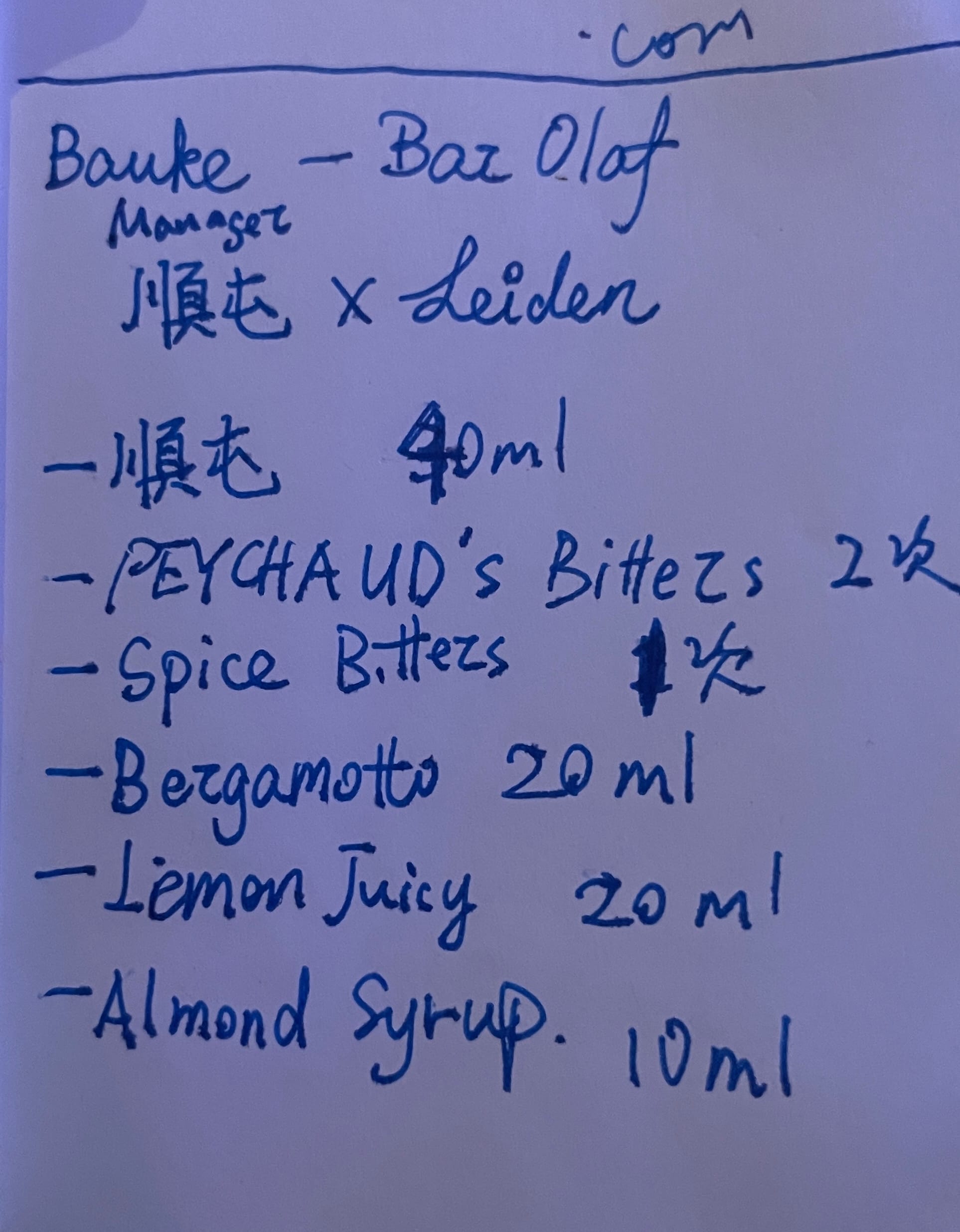
- Shuntun Baijiu: 40 ml
- Bergamotto: 20 ml
- Peychaud's Bitters: 2 dashes
- Spicy Chilli Bitters: 1 dash
- Fresh Lemon Juice: 20 ml
- Almond Syrup: 10 ml
Alcohol Content: 20-30%, due to the melting of crushed ice.
